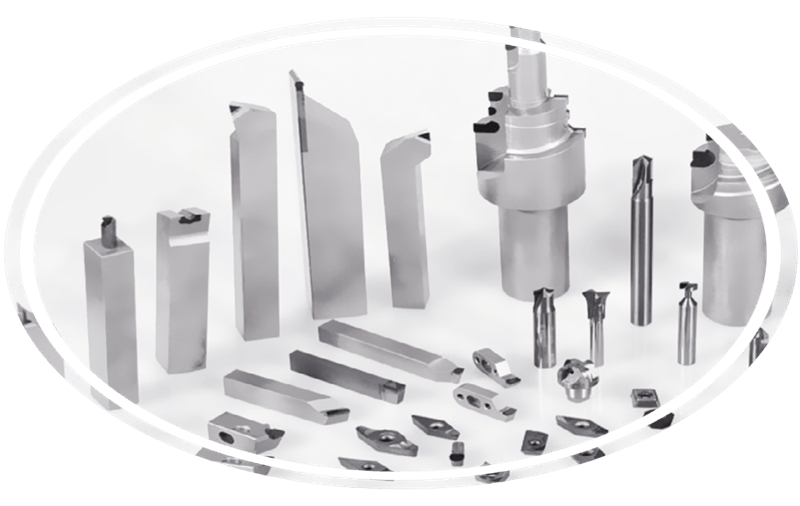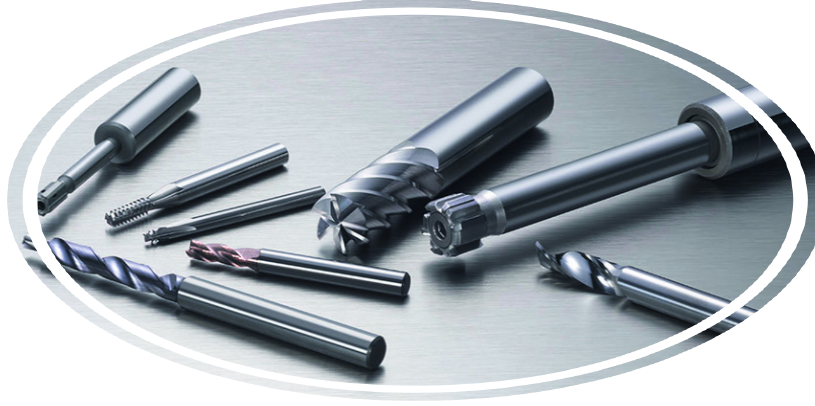Regarding cutting tools, PCD (Polycrystalline Diamond) and Carbide tools are two names that stand out in the industry. But how do you decide which one is the right fit for your particular needs? We're here to break it down for you in this detailed guide.

Polycrystalline Diamond or PCD tools are made from synthetic diamond particles fused under high heat and pressure. These give them exceptional hardness and resistance to wear.
The manufacturing process involves sintering diamond particles with a metal binder at extreme temperatures and pressures, creating a matrix of diamonds and binder metal. This results in tools that have exceptional wear resistance.
Some of the key benefits of PCD tools include their excellent hardness and wear resistance, making them highly durable and long-lasting. They can also maintain their sharpness for longer, reducing the need for frequent tool changes.
While PCD tools are highly efficient, they can be more expensive upfront and unsuitable for machining ferrous materials due to chemical wear.

Carbide tools, conversely, are made from cemented carbide, a hard material used extensively in cutting tools due to its superior wear resistance and capacity to withstand high temperatures.
Cemented carbide is produced by powder metallurgy, mixing and milling carbide and cobalt powder, then pressing into the desired shape and sintering at high temperatures.
Carbide tools are known for their hardness and heat resistance. They're ideal for high-speed operations and can cut through various materials.
The main limitation of carbide tools is their brittleness. While incredibly hard, they can be prone to chipping and breaking under high-stress conditions.
Let's delve into the specifics to understand better the strengths and weaknesses of each type of tool.
While both PCD and carbide tools are durable, PCD tools often outlast carbide ones due to their exceptional wear resistance. However, carbide tools are better at withstanding high-stress conditions.
Carbide tools shine when it comes to heat resistance. They maintain their cutting edge even at high temperatures, making them ideal for high-speed operations.
In terms of efficiency, both have their merits. PCD tools tend to stay sharp longer, reducing tool changes, but carbide tools can handle a wider range of materials.
Your choice between PCD and carbide tools should hinge on your specific needs. Consider the material you're working with, the desired finish, the tool's lifespan, and the overall cost.
PCD and carbide tools both offer unique benefits and limitations. Understanding these differences can help you make an informed decision matching your requirements.
Q: Can PCD tools be used on any material? A: Due to chemical wear, PCD tools are unsuitable for machining ferrous materials.
Q: Are Carbide tools more durable than PCD tools? A: Carbide tools are hard and heat-resistant, but PCD tools often have a longer lifespan due to their wear resistance.
Q: Which is more cost-effective, PCD or Carbide tools? A: While PCD tools may have a higher upfront cost, their long lifespan can make them more cost-effective. However, this can vary based on specific use cases.
Q: Can Carbide tools withstand high temperatures? A: Carbide tools have excellent heat resistance, making them ideal for high-speed operations.
Q: Which tool should I choose for my specific needs? A: The choice depends on several factors, including the material you're working with, your desired finish, and your budget. Both tools have unique strengths, so understanding these can guide your decision.
Contact: Nina Qiao
Phone: 86-13526572721
E-mail: cutting@zy-superhardtools.com
Whatsapp:86-13526572721
Add: AUX Industry,Zhengzhou City,Henan Province,China
We chat
